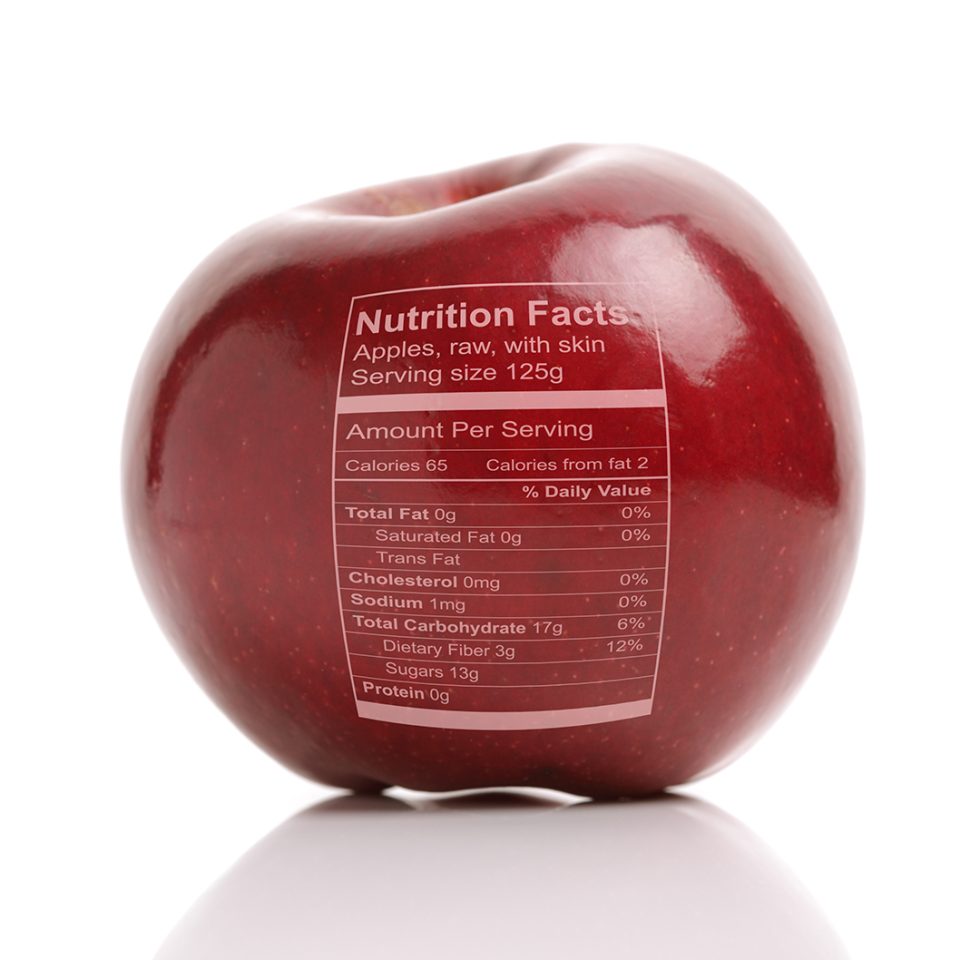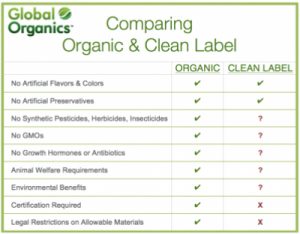Njamito Goes Fairtrade for Cocoa and Vanilla
March 31, 2025Njamito is now Fairtrade certified for cocoa and vanilla! Here’s what that means for farmers, the planet, and the values behind our meal-in-a-bottle.
Read articleWhy are ‘clean labels’ important to consumers? The key message is CLEAN LABEL products don’t compromise food quality or health benefits, and are better products for our health and bodies.

LoginEKO is intensively developing new food products that will, by virtue of their healthy approach and ingredients, educate and reinforce the concept of what ‘clean labeling’ is (this article was written in April 2023, in the meantime, in October 2023, our first such product—Njamito—was launched). To better understand this, first some context is needed.
If you’re asking “Why are clean labels important to consumers?” The key message is CLEAN LABEL products don’t compromise food quality or health benefits, and are better products for our health and bodies. In even more simple terms, clean label products are (especially in terms of ingredients used) making mass produced products more like a home cooked meal.
Generally speaking, labeling can be a fairly misunderstood subject, and the public at-large lacks a universal consensus that would push food companies to improve transparency and limit the use of artificial ingredients. Still, there is hope. Before we understand why, you should know the basic information that EU legislation requires on labels.
In general, the five elements that must be on your food label include: ingredients; sugar, fat, and sodium content; calorie counts and serving size; freshness and minimum date; if it’s organic; and if there’s the presence of GMOs. In the EU, labeling is required to list “any substances or products causing allergies or intolerances used during manufacture or preparation and present in the finished product.” This seems pretty basic and simple to understand at first glance, but when it comes to ‘clean labels’ legislation is far behind and complex.
To begin, “clean labeling” is an initiative pushed by consumers encouraging food companies to create products with easy-to-understand labels, listing natural ingredients, and that include minimal artificial additives.
Wait a second, “an initiative pushed by consumers”? Does that mean that there are no specific laws for the clean labeling of our food? The answer is basically, “yes.” On lexicology.com, the regulatory law firm of Keller & Heckman state that,
“This trend, in technical terms called “clean labeling,” is neither defined, nor regulated by EU food law, leaving the field free for national initiatives. The concept of a clean label is difficult to define, even in common speech, as what a consumer considers to be a “clean label” food differs from one consumer to another. Consequently, what is precisely included or excluded in “clean label” products varies from one industry to another – depending on the consumer target group.”
They go on to add,
“At the EU level, in the absence of specific rules, the general principles of food information as laid down in the Food Information to Consumer Regulation apply to clean labels . . . It takes extremely varied forms, even if generally speaking, a “clean labeled food” is made from just a few ingredients and is free from food additives, and artificial or synthetic ingredients.”
This seems more confusing now. Wait, it only gets better.
The problems with drafting legislation is complicated because of obvious differences in the opinions of each country, by the inclusion of E-defined chemicals of which some are naturally derived, whether an ingredient is an ‘enhancer’ or an ‘additive,’ whether an ingredient is “more natural,” and so on.
Actually, what is precisely included or excluded in “clean label” products varies from one industry to another – depending on the consumer target group.
The one reassuring thing is that even with all of this variance and uncertainty, food companies have to follow the law for all foods, that food information must be accurate, clear, and easy to understand for the consumer, and must not be misleading. In that sense, even though it’s not legally defined, “clean labeling” is “not out of the scope of the law and improper uses can be punished based on general principles of EU food law.” Ok, it’s starting to clear up a little.
Global Organics states, “As it turns out, certified organic products are automatically clean label and much, much more.Organic standards prohibit most artificial flavors, colors, and preservatives. However, organic standards go further and also prohibit synthetic agricultural inputs (pesticides, herbicides, and insecticides), GMOs, growth hormones, and antibiotics. Clean label products could still use all of these! What’s more, there are no audit or certification programs that guarantee a product is clean label.” (see their table below) So, organic products are the “gold standard” for clean labels.

Now, in the spirit of full disclosure and embracing the confusion, the difference between organic and clean diets is the processed food content. In an organic diet, there is no restriction placed on the consumption of processed foods, sugar, or fats. Just because a food is organic does not make it healthy. In other words, you could be on a 100% organic diet of potato chips, popcorn, donuts, and chocolate bars. So, technically, if a consumer chooses well, a clean diet (that happens to avoid GMOs, etc.) could theoretically be healthier than an organic diet (if the person eating the organic diet focused on organic potato chips).
So, more simply put, choose organically grown foods that don’t have processed food content, and you’ll be ok.
The crops we grow on our farm are certified organic, and so are automatically clean label, and of the highest standards for quality.
So, that said, if the spirit of clean labeling is observed, food products should be healthier, in general. With the absence of legislation, there is wiggle room for food companies to push against transparency.
To conclude, this process is very fluid and evolving. LoginEKO’s contribution to clean labeling is sticking to the strictest interpretation of the rules required to receive organic certification, which our produce is, and continuing to communicate here that the public has the power to make changes.
In addition to our organic certification, the crops we grow use a high level clean label standard, advanced conservation processes for how produce is stored to ensure food quality. Even more, as far as our novel food development is concerned, we are already in full swing developing novel plant-based foods – our very own ‘meal in a bottle’ that will prove that a meal can be healthy, convenient, affordable, and can clearly list all of the natural ingredients on the label so our customers can see what they’re getting. The ingredients will also be traceable from the start of the growth chain to provide transparency and our guarantee of quality.
The more consumers demand healthy food alternatives, the more they will push for clarity in food labeling legislation. Companies are listening, but only if enough customers are forcing the issue.
***
SOURCES:
Njamito is now Fairtrade certified for cocoa and vanilla! Here’s what that means for farmers, the planet, and the values behind our meal-in-a-bottle.
Read articleIdealism met reality as we launched our meal-in-a-bottle, Njamito. After 100.000 bottles sold, here’s what we learned about organic food and market adaptation.
Read articleWith organic seeds in short supply, we launched our own organic seed production journey to secure sustainable farming practices.
Read article